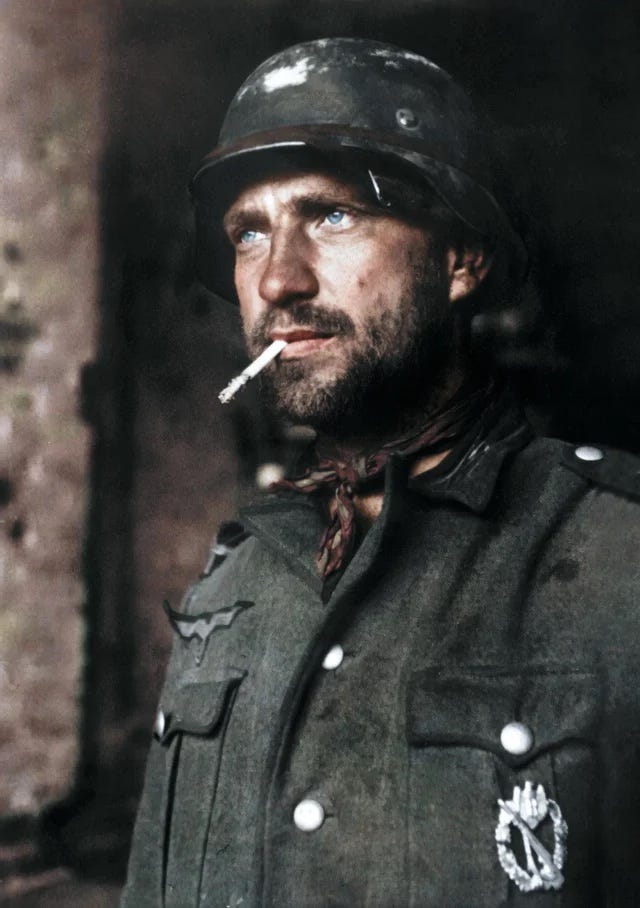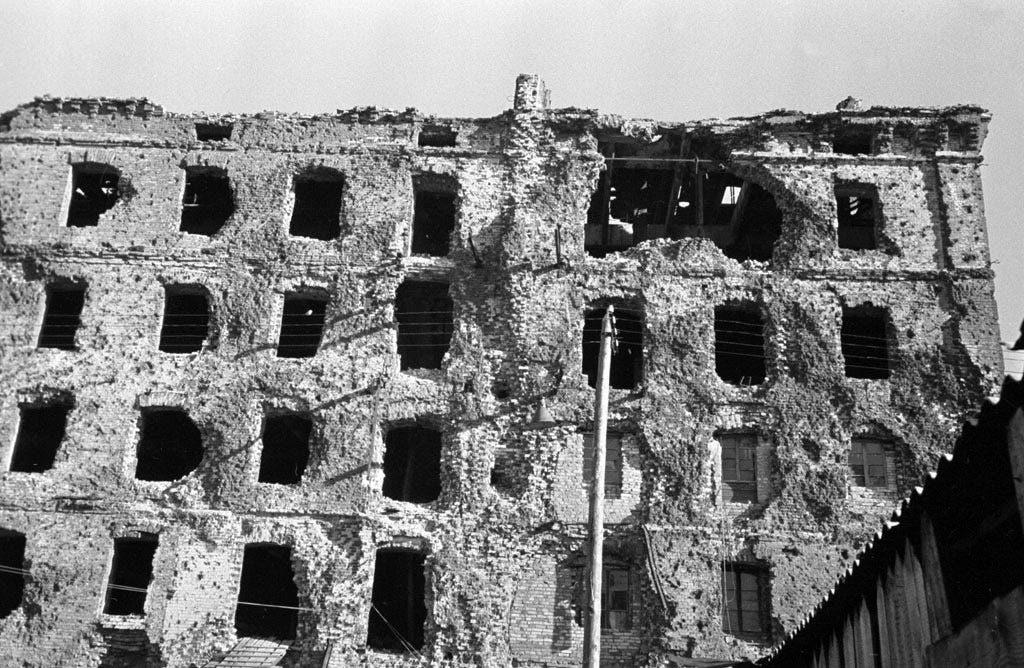General Paulus asks for 'Freedom of action'
26th November 1942: There is only a narrow window of opportunity if the German forces in Stalingrad are to make an attempt to escape.

General Friedrich Paulus, the commander of the German 6th Army now besieged in Stalingrad, was facing up to the realities of the situation. It was immediately obvious that the decision to break out, which he had already suggested, would have to be taken very quickly.
Without food, fuel or heating the Army was already weakening by the hour. It was becoming clear that staying in the city meant disaster. Soon they would not have enough fuel to be able to break out anyway. And all the time the Soviet forces around them grew stronger.
Paulus was not getting any clear directions from the German High Command, although it seems that Hitler had already made the decision not to allow a break out.
Paulus was a man who believed strongly in the military hierarchy and the need to follow orders strictly. He argued1 that if he did not obey orders then he could not expect his subordinates to follow theirs. But he also had a very clear appreciation of the situation that his Army was now in. While he agonised over the two alternatives, time passed.
I must make the only possible decision and turn with all my might on the enemy who was about to stab the army from behind. In the latter event, clearly, the eastern and northern fronts can no longer be held and it can only be a matter of breaking through to the southwest.
On the 26th he wrote to Field Marshal von Manstein, a letter that was flown out of the pocket by Luftwaffe General Pickett:
...
For the past thirty-six hours I had received no orders or information from a higher level. In a few hours I was liable to be confronted with the following situation:(a) Either I must remain in position on my western and northern fronts and very soon see the army front rolled up from behind (in which case I should formally be complying with the orders issued to me), or else
(b) I must make the only possible decision and turn with all my might on the enemy who was about to stab the army from behind. In the latter event, clearly, the eastern and northem fronts can no longer be held and it an only be a matter of breaking through to the south-west.
In case of (b) I should admittedly be doing justice to the situation but should also - for the second time - be guilty of disobeying an order.
(3) In this difficult situation I sent the Fuhrer a signal asking for freedom to take such a final decision if it should become necessary. I wanted to have this authority in order to guard against issuing the only possible order in that situation too late.
...
The airlift of the last three days has brought only a fraction of the calculated minimum requirement (600 tons = 300 Ju daily). In the very next few days supplies can lead to a crisis of the utmost gravity.
I still believe, however, that the army can hold out for a time. On the other hand - even if anything like a corridor is cut through to me - it is still not possible to tell whether the daily increasing weakness of the army, combined with the lack of accommodation and wood for constructional and heating purposes, will allow the area around Stalingrad to be held for any length of time.

The vehicle fuel was only enough for minor troop movements and would not suffice to concentrate the tanks for a break-out. If these figures were correct, one could only wonder how Sixth Army had proposed to implement the break-out plan of which it had given notice four days previously.
According to Field Marshal von Manstein2, the situation was already hopeless. He discussed the supply situation with Pickett on the 26th:
According to Pickett the army had enough rations - albeit on short issue - for twelve days. Ammunition stocks were at 10-20 per cent of the normal scale, which corresponded to the amount which would be expended in one day’s intensive fighting!
The vehicle fuel was only enough for minor troop movements and would not suffice to concentrate the tanks for a break-out. If these figures were correct, one could only wonder how Sixth Army had proposed to implement the break-out plan of which it had given notice four days previously.
Manstein was of the opinion that the only way to break out was to disregard Hitler and present him with a ‘fait accompli’. Yet it would seem that 6th Army would not have been able to break out - even if Hitler had authorised it or if Paulus had seized the initiative and broken out without orders.
See Erich Von Manstein: Lost Victories: War Memoirs of Hitler's Most Brilliant General, which also contains the full text of Paulus' letter of 26th November.




